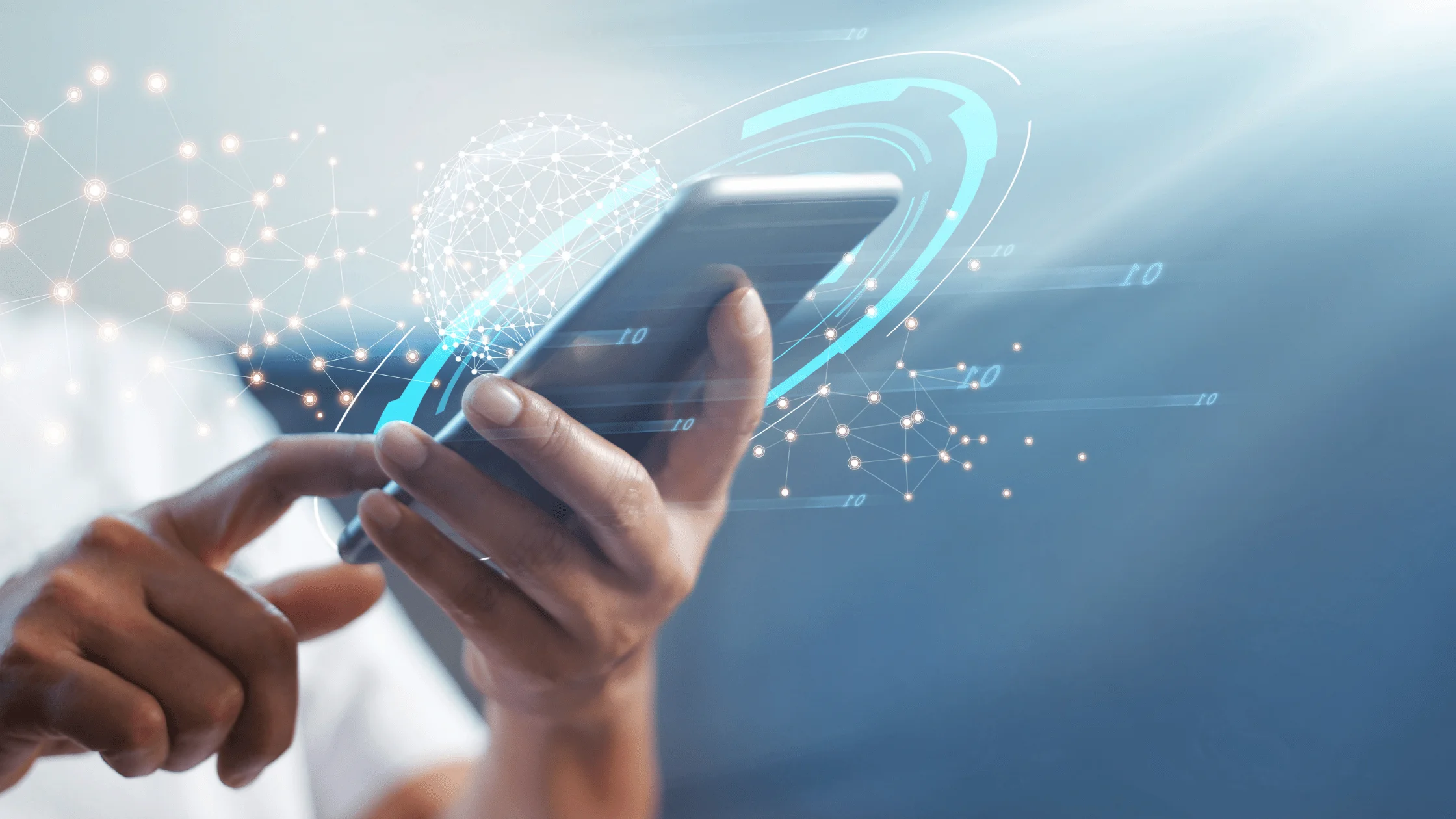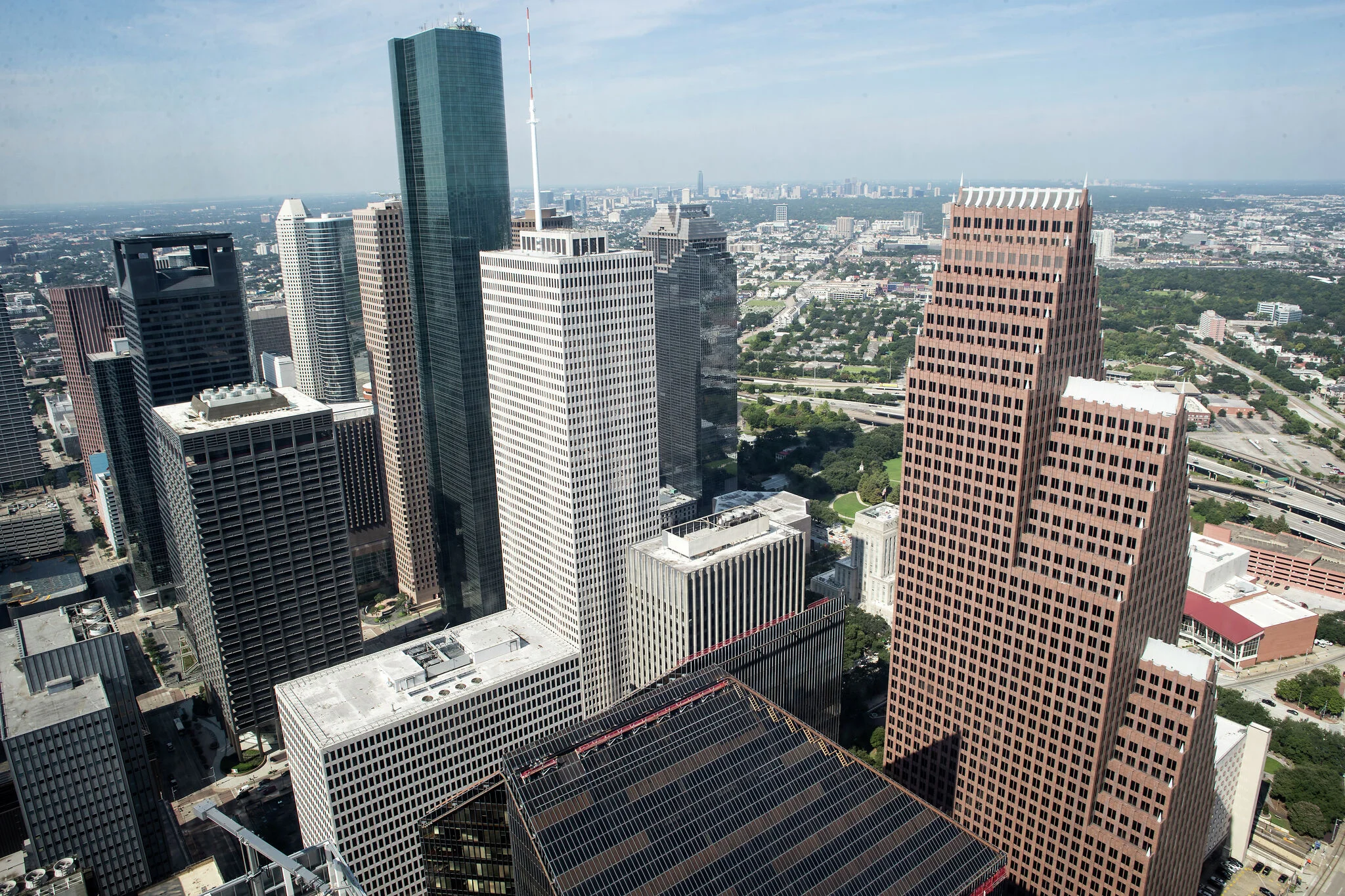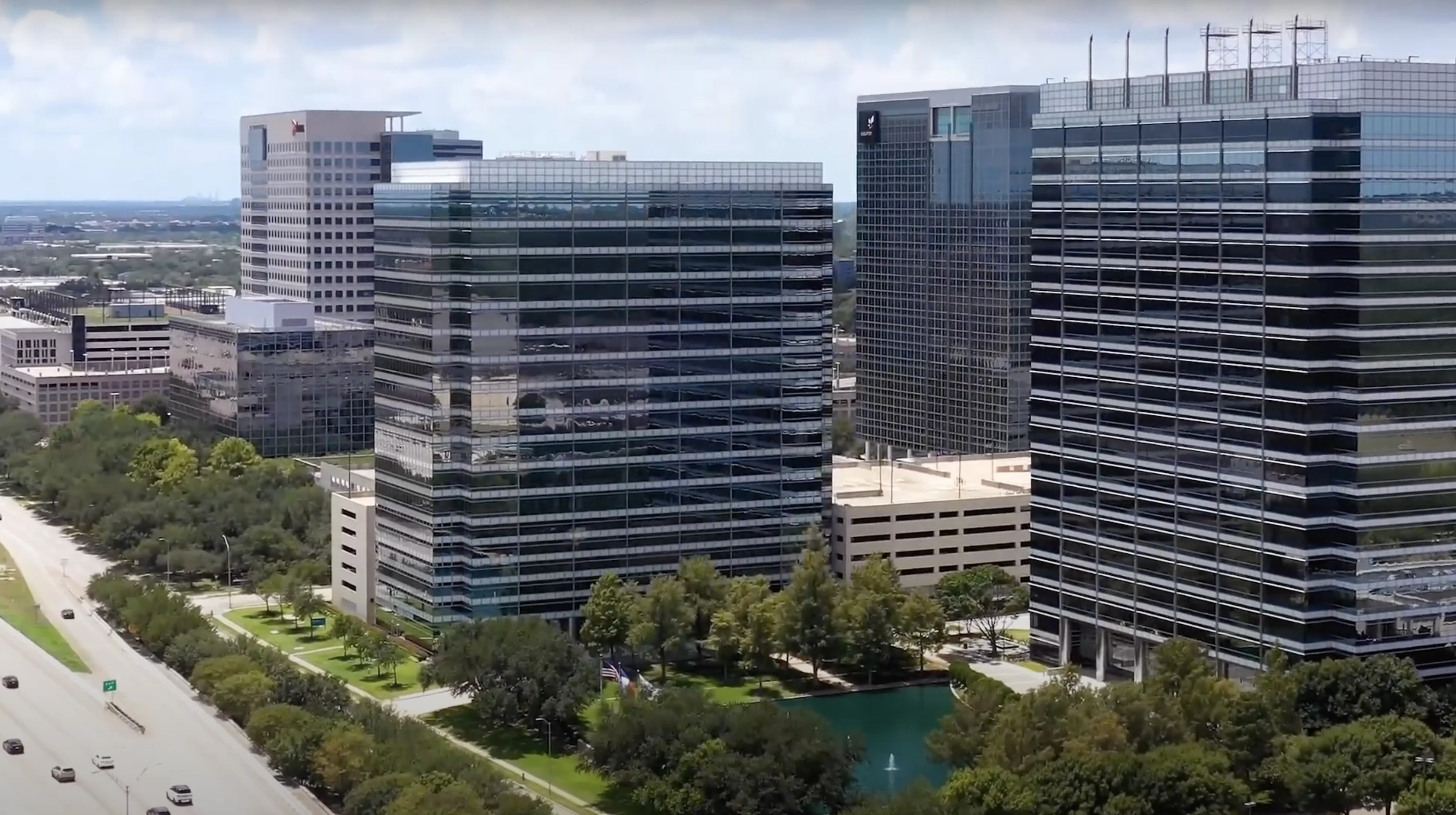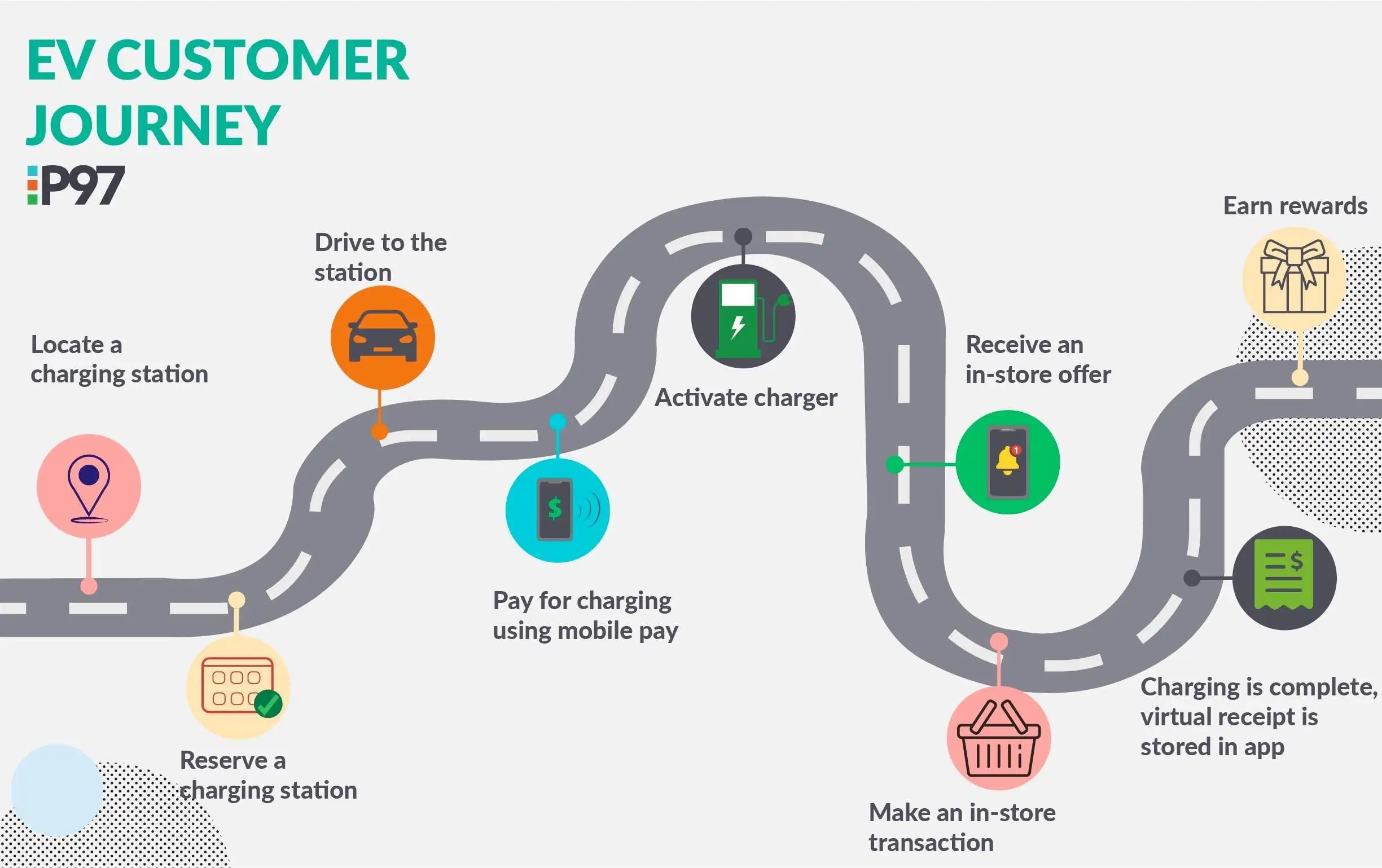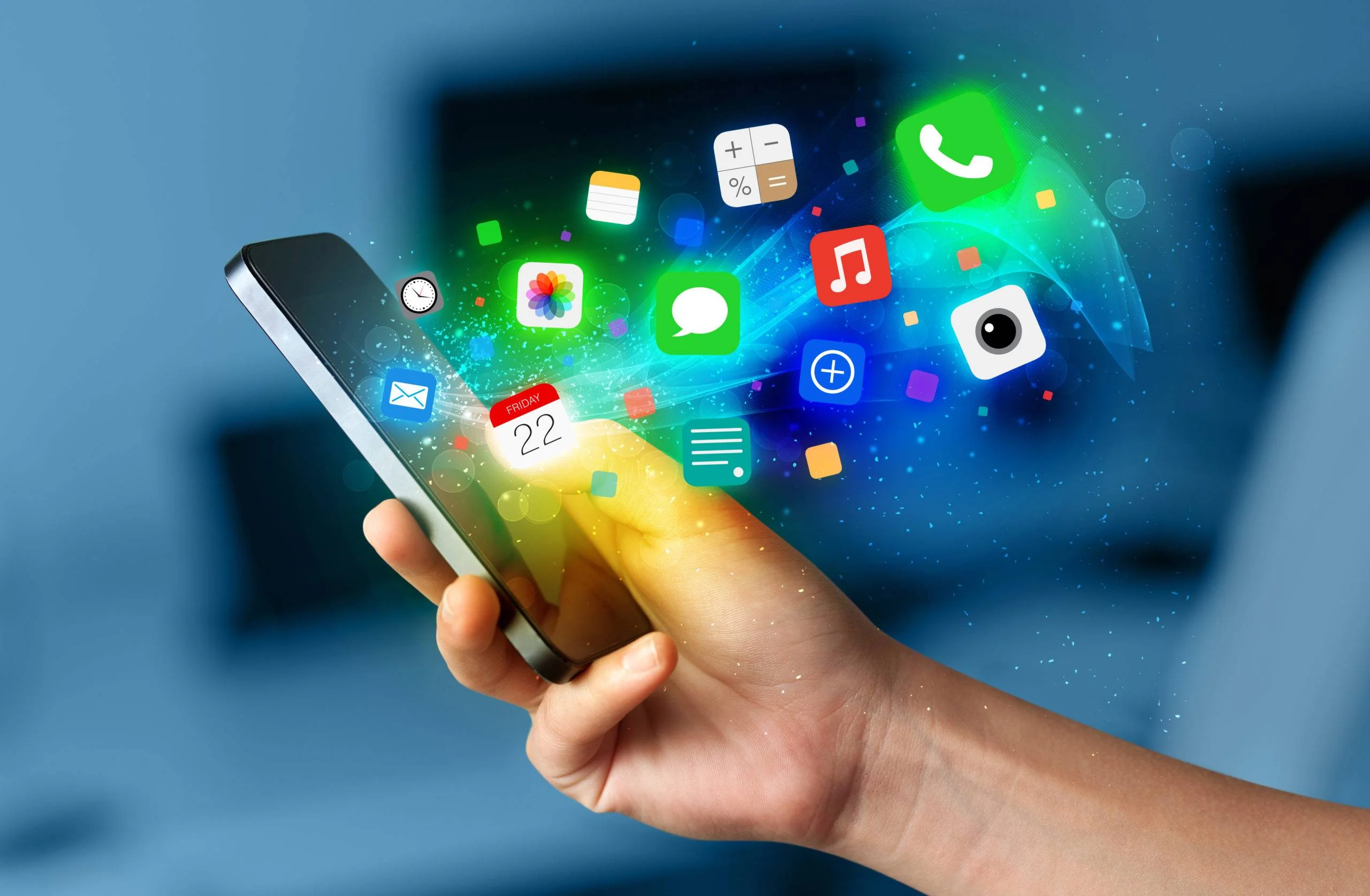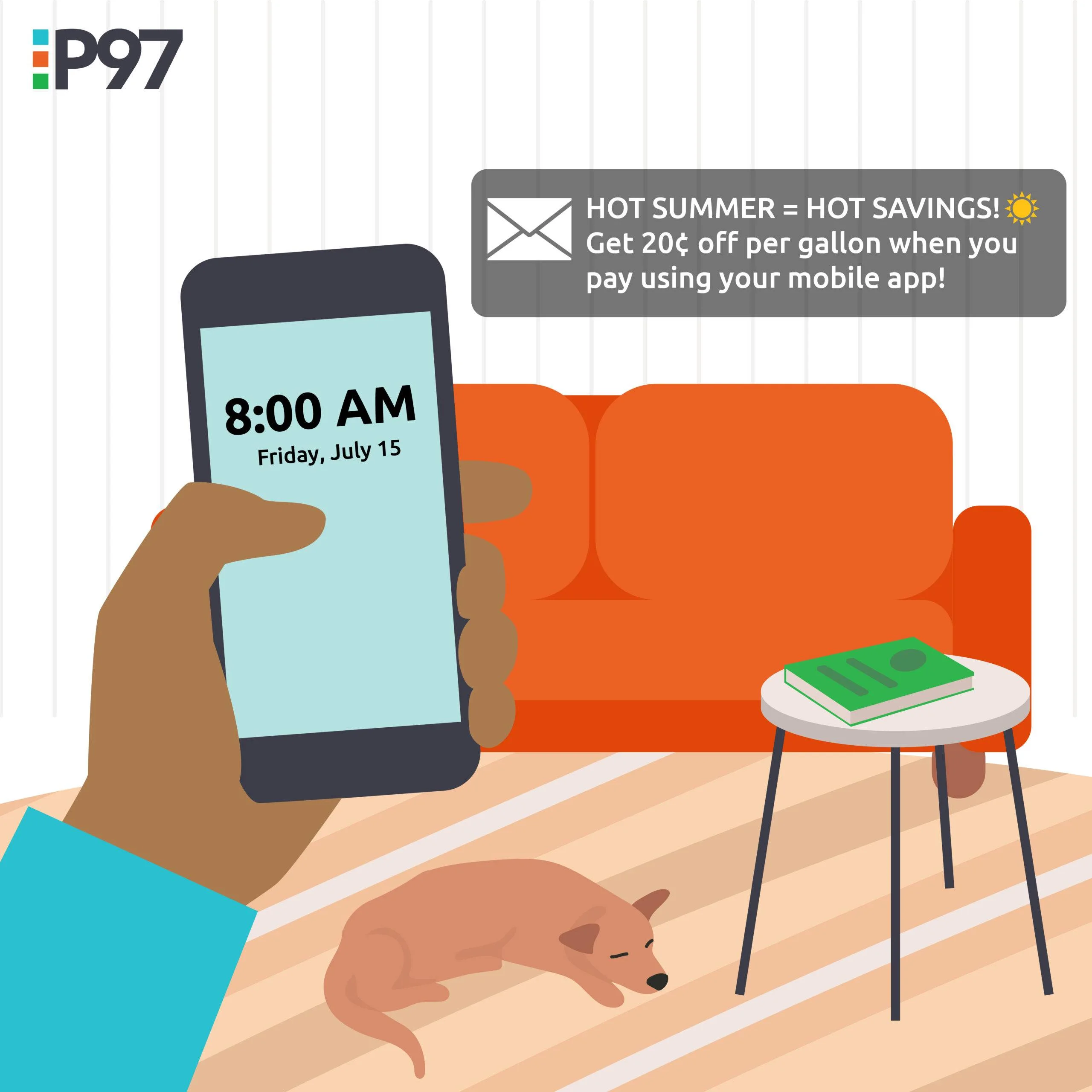P97’s founder and CEO, Don Frieden, was featured on the BusinessMakers Show with Russ Capper. Watch the interview here or read on for the full transcript.
It wasn’t supposed to be so complicated. Why weren’t gas retailers taking advantage of mobile pay apps at the pump and in their convenience stores? Don Frieden is fixing that glitch. P97 partners with fuel companies to leverage mobile and cloud technology and enable point-of-sale payments. Now he’s adding fast food restaurants and parking to the mix.
Russ: Hi I’m Russ Capper and this is The BusinessMakers Show. My guest today is Don Frieden, Founder and CEO of P97; Don, welcome to The BusinessMakers.
Don: Thanks Russ, it’s my pleasure.
Russ: Great. Tell us about P97.
Don: P97 is focused on taking friction out payments. So we’re leveraging mobile technology and Cloud technology to enable mobile payments at unmanned payment terminals or enabling at quick serve restaurants.
Russ: Okay, wow. So mobile payment now is really a happening thing which is good news probably in that there’s a lot of users ready to accept it and perhaps retailers as well, but it’s probably also attracting a lot of competition.
Don: It is. Yes, there’s a lot of people chasing contactless payments or the new mobile payment platform.
Russ: And you sort of have some positive momentum going pretty well in one category, right?
Don: We do. So our core focus is the convenience retailing fuel industry and we’ve won a couple of major contracts recently. We just won the Shell Motor Stop, so we’ll be deploying about 14,000 gas stations in 2018. We also have the Phillips66 Conoco and 76 brands which will deploy about 6,000 or 7,000 locations this coming year.
Russ: My goodness. Is there anybody else doing it focused on gasoline stations?
Don: Gasoline is kind of our primary area of specialty. We have mobile payment competitors with payment processors like First Data, PayPal is trying to expand their wallet into these markets, but so far we’ve had a dominant position in the marketplace.
Russ: That’s pretty cool. So when you’re handling money through phones and stuff it’s a pretty serious thing. Security must be high on your list of priorities, would that be right?
Don: Fraud prevention and security are both priorities for us. There are a number of industry standards; we work with a payment card industry that requires us to have certain levels of certification. Our customers require us to have very high levels of security and controls in our business as well and then we also deploy a number of tools to prevent fraud. So things like SDKs in with our mobile app to detect if someone has rooted their phone or has malware on their phone, those are easy things for us to detect to help prevent fraud, and then we use multi-factor authentication.
Russ: I’ve already mentioned how it’s a happening space now and that’s good, but when it comes to filling up my car with gasoline on one hand I would want to go only to stations that handle it and there would be lots of stations that don’t, is that right?
Don: Currently that’s correct. I think that what you’ll see over the next 12 to 18 months is probably 40% to 50% of gas stations will be accepting mobile payments. We’ve been working at this for about 6 years so it’s just now starting to take off.
Russ: Exciting times then. So that means the argument for a little independent station that isn’t using it would want to use it because it might attract your customers, right?
Don: We started working with major oil companies that way we can build out the network effect. We want to get tens of thousands of sight available so consumers will then adopt the technology.
Russ: So this is a business show after all and I’m a user, I like the idea; do I have to pay you to use your app?
Don: For the consumer it’s all free. It’s like many of the mobile applications out there in the market today; these are all funded by oil companies and then they also provide incentives to get consumers to use the mobile app. So you’ll see on average around $0.10 per gallon discount if you use the mobile application to pay.
Russ: Wow. So how does it actually work?
Don: We actually use a number of different technologies; we use geolocation services so that’s how we can monitor where you are as you’re approaching the gas station. Then we use the Sailor Network to communicate between your mobile device or your connected cart to connect to our Cloud services, and then from our Cloud services we connect down to the sight. So there’s no hardware required at the sight which makes it nice for merchants to get onboard.
Russ: Okay, so how is there a connection between me completing filling up my car and my phone knowing what the dial said, that I just spent $50.00 filling up my car; how does all that work?
Don: When you first arrive at the location we log you in. We recognize you’re there and you simply declare what gas pump that you’re parked in front of. So you’ll declare dispenser #3 and then within 5 seconds we turn that gas dispenser on because we already know your payment method, we already know all of your details. So we can pre-auth the transaction and turn the gas pump on in 5 seconds. You hop out of the car – no prompting at the gas pump – simply drag the nozzle, select your grade in fuel and then as soon as you hang the nozzle up within about another 20 seconds you’ll have an electronic receipt right on your phone that matches the transaction at the gas pump.
Russ: Wow. Well take us back to the beginning; you said you’ve been doing this 6 years. I don’t remember how many years ago it was but there was something called the EZ Pass or something that sounded like it was a fob that did something similar.
Don: We’re very familiar with that; we were involved in that project. That technology was launched originally by Mobile Oil and it was called SpeedPass. It was launched in 1997 and an interesting parallel to that technology in our company, that was the last payment innovation in the retail fuels industry until mobile payment.
Russ: So 20 years ago.
Don: That’s correct.
Russ: Wow. So take us back 6 years ago; what happened – you’re the Founder – that you said I’m going to do this with my iPhone?
Don: So we started seeing this advent of mobile payments and we realized there was a lot of friction in the payment experience. Not necessarily just dipping your card at the gas pump, but really building a meaningful relationship between oil companies and consumers. So we said let’s leverage learnings from contactless payments and how we could use the mobile phone. So we actually partnered up with Microsoft, we created a white paper called the reference architecture for the retail fuels industry and part of that white paper was a study of why had it taken so long to be able to have implementation of things like mobile payments and why did it take years and years to roll out loyalty programs. And in that paper we documented all of these use cases and how we could improve that and then our business was built around building out the infrastructure to solve all the problems we identified in that paper.
Russ: Once again, I’m a customer, I have your app on; do I have to pay for it with your credit card or something like that or can I do it out of my bank?
Don: Great question. So what we’ve built around the app we call wallets. We accept Apple Pay or Chase Pay or Samsung Pay. We also accept all your traditional credit cards and then we can also accept things like fleet cards or ACH payments; ACH is a direct debit out of your checking account.
Russ: So it all sounds interesting, it sounds compelling; do you think you’ll just always be in gasoline stations and be able to reach whatever sort of success you want to reach or do you want to expand beyond that?
Don: Our business plan has always been expanding beyond fuel. We went into the fuels market first because it’s the most complex market and if you can solve mobile payments in that marketplace then you can rapidly spin through additional vertical markets. So we’ll actually be launching a pilot project out in the San Francisco Bay area in the first half of 2018 which will include all from a connected car you’ll be able to buy fuel, to pre-order, prepay food at a quick serve restaurant, to pay for your tolls and also to pay for parking, all from the comfort of your car.
Russ: Wow. Well Don I really appreciate you telling us your story.
Don: Russ thanks for your time too.
Russ: You bet. And that wraps up my discussion with Don Frieden, the Founder and CEO of P97 and this is The BusinessMakers Show.


